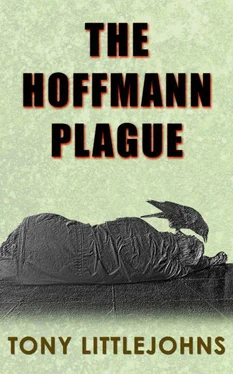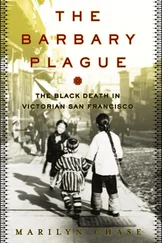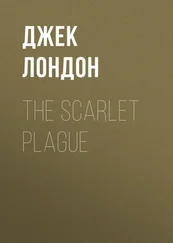‘Oh, Jamie, that doesn’t matter, honey! I know you love me and I’ve always known. It shows in everything you do and say.’
‘But I do love you, Jane; more than anything. I just wanted to tell you that.’
Jane turned round and kissed him, stroking his face and thick beard.
‘And I love you, too. I think I was already falling in love with you the first week we met. You treated me like an equal and there was never any macho bullshit about you.’
She smiled at him. ‘Come on, Mr Romantic, let’s go to bed.’
By early December they were feeling quite settled living at the farm. A routine had been established, of sorts, and there was always work to be done on a daily basis. Self-sufficiency – and, therefore, survival – was pretty much a full-time practice. When they’d left the bungalow to live at the farm they hadn’t been sure how it was going to work, but things had soon sorted themselves out. There were now new rabbit snares to check every day, horses to be looked after, other farm animals to tend to, work to be done on the land, maintenance of the infrastructure, and work on the ground behind their building to make a garden.
Since they had been working daily around the farm and contributing to its upkeep they had received a regular share of eggs, milk, butter and cheese that Emma produced, and sometimes a chicken. The eggs and dairy products were welcome additions to their diet, which they’d really missed when they’d been at the bungalow.
Their overall happiness increased greatly: they had been isolated in Bexhill, but now felt part of a small community, working together towards something. As a family unit their mutual love and respect deepened every day. The change in Megan was astonishing and so heart-warming for them to see. When they’d met her she had been a scared and somewhat introverted girl who had suffered greatly from what she had been through, but now she was maturing quickly and blossoming into a young woman. Her confidence had increased dramatically since her recovery from the shooting and she seemed to look at the world through new eyes. She was keen to learn everything they could teach her, whether it was practical things around the farm or her schooling in the evenings. She and Sally had become firm friends and spent a lot of time together.
During the first week of December they began coppicing; Jamie, Peter, Phil and Sophie went out several times to the nearest copse to work on it. Bill said he had too much work to do at the farm, but Jamie suspected that he didn’t like the idea of leaving the women and girls on their own and unguarded, though he didn’t say anything to him.
Jamie gave them a short talk on tool safety first and how to use them properly. Their main tools were a bow saw, a pair of loppers and a billhook and, like any tools, there was a right and a wrong way to use them. He showed them how to cut the trunks down to the stool, how to minimise the chance of infection to the tree by angling the cuts to shed water, and then how to sned the branches with the billhook or loppers. Snedding was a very old word, meaning to trim the smaller outer branches and leaves from the main trunk, leaving it smooth.
They made piles of all the brash – the discarded small branches and leaves – which would become home to many different creatures in time, and at the end of each day they brought a horse with the cart to take the logs back for storage and seasoning. The younger folks enjoyed it and easily out-paced Jamie, sometimes teasing him playfully by saying things like “You’re getting old, Jamie!”, or “Come on Jamie – no time for slacking!” Jamie just laughed and smiled with them. Peter, in particular, had a great time. He was as tall as his dad, but much leaner and looked quite studious, though he proved adept with the tools and made the work look easy. They didn’t coppice every tree but thinned them out a lot, which would let in more sunlight and encourage wild flowers to grow as a result.
Back at the farm, Jane and Megan worked on the garden area behind their place, digging over the soil and making beds for planting. They sowed onions, garlic, potatoes and several other vegetables in preparation for spring, and as they worked they chatted constantly about many things. One day near the end of the week, they stopped for a coffee in mid-morning and Jane noticed that Megan was looking thoughtful.
‘Mum?’ she said after a while.
‘Yes, honey?’
‘Would you mind telling me about your sisters? I was wondering what it was like for you as I always wanted a sister, but my mum and dad couldn’t have any more children after I was born, for some reason. I think they explained it to me when I was younger, but I can’t remember why now. I had some cousins that we saw often, but they were all spoilt brats and I never got on with them!’
‘Of course I don’t mind, sweetheart – you know you can always ask me anything.’
Jane told her about Debs and Kate; about their relationship, how close they had been and the fun they’d had together, both as children and as adults. Jane had been the middle sister and had loved them both dearly, and after a while she got upset and started crying.
Megan looked distraught and hugged her. ‘Oh, Mum, I’m so sorry. I didn’t mean to upset you.’
Jane smiled at her through the tears. ‘Megan, honey, don’t be silly; you didn’t upset me. It’s only natural for you to ask and it’s nice for me to talk about them, even though it hurts. It’s all part of the grieving process and we mustn’t bottle these things up inside us. I think of them every day, but I haven’t talked about them for a while and it’s nice to do so.’
Megan felt better at that and when they went back outside to continue working she spoke in depth about her parents for the first time, which pleased Jane. ‘I know they loved each other,’ she said at one point, ‘but they were always bickering about things. I never see you and Dad bickering.’
‘Well, maybe they had some money problems, sweetheart, or troubles at work. You must understand, Megan, that before the plague everyone had to go to work – often in jobs they didn’t like – to earn enough money to live on, and to pay the mortgage or rent and all the bills. That could be very stressful for lots of people, Dad and I included. It’s different for us now, compared to how things were back then. Since the plague we’ve been free of all that; we haven’t had to earn money just to be able to live. We live now by our own devices. You’re never going to experience having to get a job to earn enough money to live – and thank God for that! If Jamie and I had been together before the plague, you may well have seen us bickering about things, too!
I know we’ve had plenty of stresses and problems since the plague: learning what to do to survive, and when our vegetables haven’t grown properly or have been lost due to disease or pests, and when we’ve gone a bit hungry because we didn’t get any rabbits or fish, or had to make special trips just to get water, etc., but it’s a different sort of stress. Before, we were at the mercy of money, employers, the government, taxes, insurance, and all manner of other stressful things that dictated our lives. Now, we’re just at the mercy of nature and our own resourcefulness, and that makes a big difference. Do you see what I’m saying?’
Megan thought for a while before answering. ‘I think so, yes. It’s kind of hard because I’m only twelve and I’ve never had to earn money – apart from doing chores for my pocket-money – but I see the difference and think I understand what you mean.’
‘You know, in many ways – apart from all the deaths and losing loved-ones, I mean – I’ve never felt so alive or so fulfilled before, and Jamie said something similar to me before we met you.’
Читать дальше












